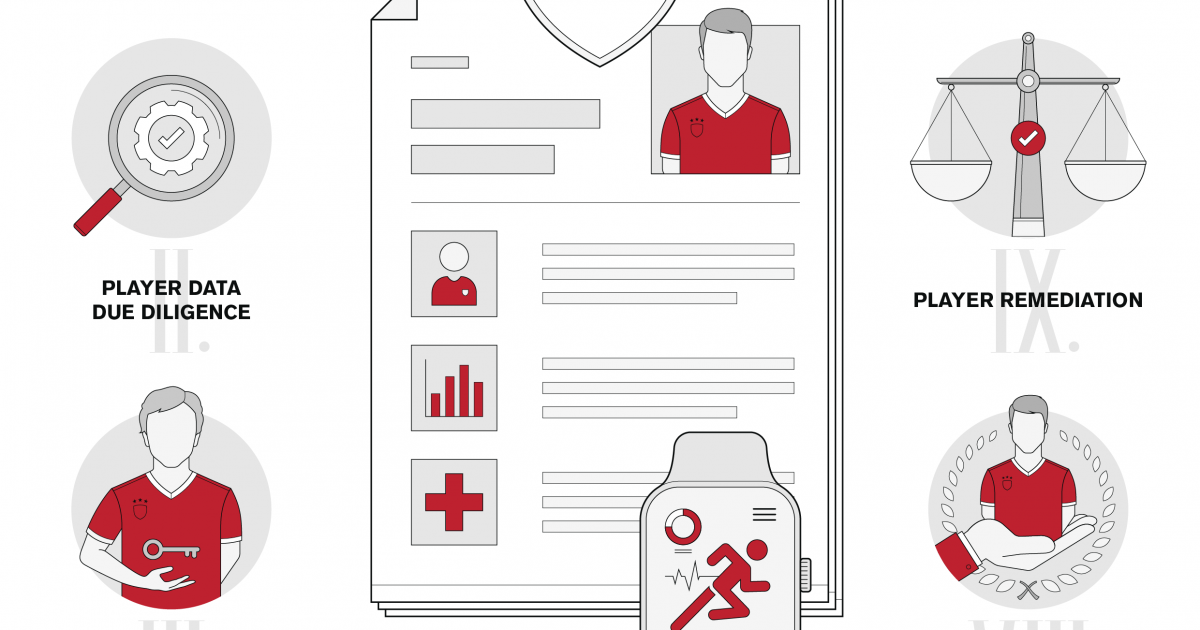Elevate Your Digital Presence
Explore tips and strategies to enhance your online engagement.
Level Up Your Safety: The Unexpected Benefits of Decentralized Player Protection
Unlock the hidden perks of decentralized player protection! Discover how it can level up your safety and enhance your gaming experience.
How Decentralized Player Protection Enhances Safety in Gaming
The rise of decentralized gaming platforms has brought about revolutionary changes in player protection, enhancing safety in gaming environments. By leveraging blockchain technology and decentralized systems, players can engage in gaming experiences that prioritize their security and privacy. Unlike traditional gaming platforms, which often have a centralized authority, decentralized player protection minimizes the risks associated with data breaches and fraudulent activities. With each transaction being securely recorded on a blockchain, players can trust that their personal information and funds are well-guarded, contributing to a more trustworthy gaming atmosphere.
Moreover, decentralized player protection fosters a more equitable gaming landscape by ensuring that players have more control over their assets. Decentralized systems eliminate the potential for exploitation often seen in centralized gaming platforms, where players may face unfair practices or arbitrary restrictions. By allowing players to own their in-game assets, transferable across numerous platforms without the fear of losing them due to changes in company policies, decentralized solutions enhance overall safety in gaming. This shift not only empowers players but also promotes a culture of fairness and transparency, aligning with the core principles of the gaming community.

Counter-Strike is a popular tactical first-person shooter game that has captivated players worldwide. The game emphasizes teamwork, strategy, and skill, making every match exciting and unpredictable. For those interested in gaming promotions, you can check out the stake promo code to enhance your gaming experience.
Top 5 Unexpected Advantages of Decentralized Player Protection
Decentralized Player Protection (DPP) has emerged as a revolutionary concept in the gaming industry, providing numerous unexpected advantages that go beyond mere security. One of the most significant benefits is enhanced transparency. In traditional systems, players often face challenges in understanding how their data is managed or protected. However, DPP utilizes blockchain technology to ensure that all transactions and player interactions are recorded transparently. This means players can verify the integrity of their data and gaming outcomes, leading to increased trust in the platform.
Another remarkable advantage of DPP is its resilience against fraud and manipulation. Traditional gaming platforms are vulnerable to hacking and data breaches, which can compromise player information and funds. Decentralized systems distribute data across a network of nodes, making it significantly harder for malicious actors to succeed. This not only protects players but also fosters a healthier gaming environment, allowing developers to focus on innovation rather than constantly safeguarding against threats.
Is Decentralization the Future of Player Safety? Discover the Benefits
The rise of technology in sports has prompted a critical examination of player safety, particularly in the context of how decentralization can reshape the landscape. By leveraging blockchain technology and decentralized systems, stakeholders can ensure that data regarding player health and performance is securely managed and transparently shared. This approach not only fosters accountability but also mitigates risks associated with miscommunication and data manipulation. As more organizations explore the adoption of decentralized methods, the potential for enhanced player safety becomes increasingly evident.
One of the most compelling benefits of decentralization is its capacity to empower players themselves. With a decentralized model, athletes can take control of their health data, allowing them to make informed decisions about their wellbeing. In a sports ecosystem where player safety is paramount, this shift could lead to better injury prevention strategies and personalized training regimens. Additionally, by enabling direct communication between players, medical staff, and coaches without intermediaries, decentralization can create a more trustworthy and rapid response system in times of injury or health concerns.